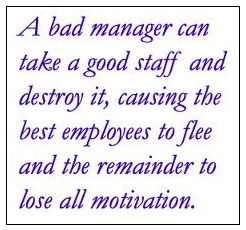 When I first worked at McKinsey after college, I was pretty scared of speaking up. I distinctly remember sitting in the large conference room with another analyst, our manager, the senior manager, and the Partner on the project, to discuss our strategy for a consumer business client.
When I first worked at McKinsey after college, I was pretty scared of speaking up. I distinctly remember sitting in the large conference room with another analyst, our manager, the senior manager, and the Partner on the project, to discuss our strategy for a consumer business client.
The Partner discussed a strategy that frankly didn’t make sense to me, but he had 10+ years of experience, so I didn’t say anything. I was convinced that I didn’t know any better — I was only an Electrical Engineer with little business experience. I had some thoughts and suggestions, but I wasn’t sure if they were sound.
I was also afraid to ask questions — I didn’t want to sound stupid or foolish. After all, I didn’t want them to think that they hired the wrong person! Not only that, but it’s impolite to challenge authority in Asian culture. Even though McKinsey is an American company, I was working in Hong Kong. I was afraid that asking a question or making suggestions would be perceived badly, given my lack of experience.
The other analyst did speak up, but I don’t remember what he said. I was too busy worrying about what I should say or not say. At the end of the day, I was just scared, and defaulted to what’s safe – saying nothing. While not speaking up feels safe, it can be detrimental to your work reputation and career advancement. At the end of that project, I received a less than average rating for my lack of proactive participation.
I received this rating despite the fact that I built the Excel model that was core to the project’s execution, and despite having successfully completed competitive interviews for the client. Actually, the partner never knew that I built the excel model, or that I did the competitive interviews. What he experienced was the completely silent Lei during all of the discussions.
I remember the manager telling me — “We hired you for a reason, and we need you to voice your opinions. We don’t expect you to know everything or always be right, but we want to hear you try. That’s part of how you add value. Maybe not everything you say will be sound, but any new thinking will prompt us to expand in a new direction, and push us to develop a better solution.”
I realized that keeping my head down to do the work is not enough if I want to be appreciated for it. I have to speak up, especially in meetings with Senior people.
Why Speak up in Meetings
I learned quickly that speaking up is essential for three reasons:
- Expand Your Reputation – remind people, especially senior people, that you exist and your participation adds value. Work meetings are an opportunity to show your knowledge, ability to think critically, and help the work progress. People respect others who can tactfully voice their opinions. I may not have had the Partner’s experience, but I know my model and my competitive interviews. I could have used that knowledge to ask a question or share an insight.
- Build Your Confidence – The more you speak up, the more comfortable it will feel. You will not always say something smart, but no one else does either. Practice makes perfect. Only when you put yourself out there and speak up can you see what works and what doesn’t work. When things didn’t work well, shrug it off and acknowledge your efforts for showing up.
- Those Who Speak up get Promoted Faster Speaking up shows that you are actively engaged and interested in helping the team solve an issue. Every manager looks for leadership qualities in their team members. Speaking up is one way to show leadership qualities that demonstrate to your manager that you are ready for the next level. Plus, the more senior you get, the more you have to speak up.
Speaking Up in Meetings – 5 Tips
Speaking up takes practice. You cannot expect to become good at it overnight. Heck, I still practice doing it well in all group settings. I was a shy, Asian engineer when I started my career. Now I like to talk, but I can still feel the discomfort when I speak up in a new group setting. I just learned to accept the feeling and speak up anyway. Here are 5 tips on how you can speak up effectively:
- Listen Actively – This is easier said than done. We are sometimes so busy worrying about what we are going to say, and whether we should say anything, that we forget to listen to others. Leave your doubts at the meeting door and focus your mind on listening to the issue being discussed at the meeting, instead of your fears about public speaking. You cannot easily join the conversation if you don’t know what other people have said already.
- Ask Questions – Sometimes the simplest way to speaking up at a meeting is to ask a question.
- Answer a Question – The next best way is to answer a question that was posed to everyone.
- Share a Finding– Since you are likely to be working on something that is relevant to the issues that are being discussed at the meeting, find an appropriate time to share your findings to help the group learn.
- Just Do It, and Expect a 30% Success Rate – If you expect perfection, then you may never speak up. You will make it mean too much when your comments didn’t sound smart or add value. Many comments said in a meeting have no value. It’s ok. The important thing is to make yourself practice. The more you practice, the more you have a chance to get better.
Get out of your comfort zone and speak up in meetings. Only when you get out of your comfort zone can you develop new skills. To practice, do this workout – Speaking Up Examples. You’ll find step-by-step instructions and examples about asking questions, answering questions, and sharing findings.
Best wishes to your career success. See you at the Top.
Like this post? Help me out by sharing it on Linkedin, Email, Twitter, Facebook, Google+, etc.
-Lei






